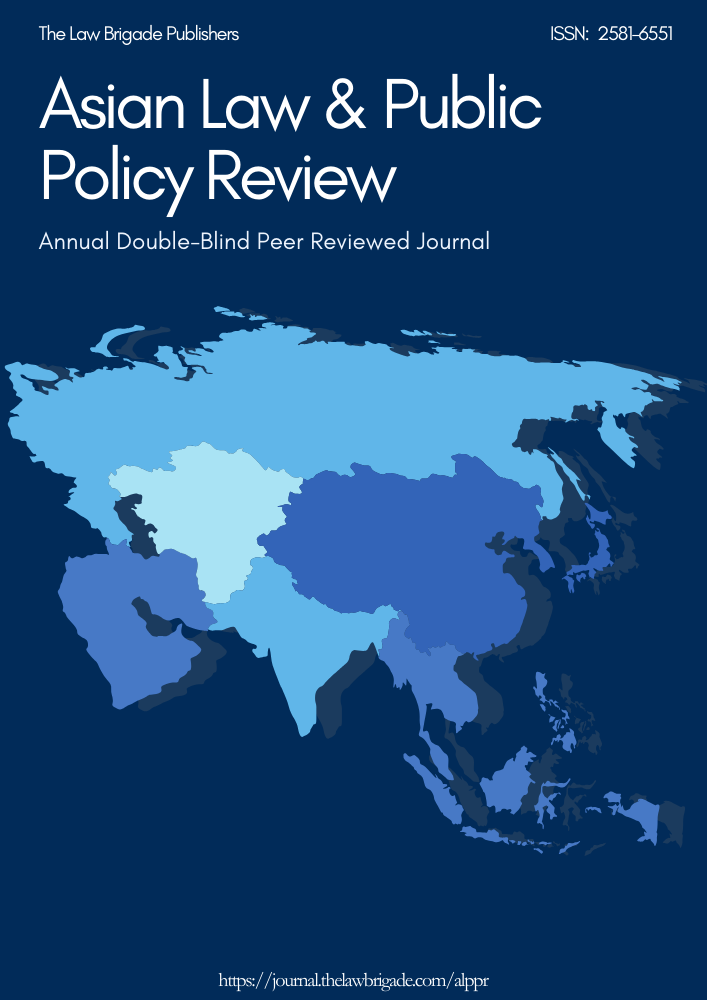Analyzing The Possible Impact Of Climate Change Based Migration In Asia And The Role Of International Law In Recognising Climatic Refugees
Keywords:
Climate Change, Migration, International LawAbstract
As expressed by the United Nations ex- Secretary General Bank Ki Moon that " Climate change does not admiration fringe; it doesn't regard who you are - rich or poor, little or huge. Thusly, this is the thing that we call 'worldwide difficulties,' which require worldwide solidarity." With day by day increase in the global warming, the threat of climate change migration is increasing. South Asian Countries mainly Maldives, Sri Lanka, India and Bangladesh are more likely to be impacted because of this climate change based migration in days to come. Last year in December 2018, “leaders from 164 countries formally adopted the UN Global Compact for Migration at a meeting in Marrakesh, Morocco”. But, the document has limitations. It’s voluntary and non-binding and it is still a document only not a policy This paper does an in dissection of this issue which is making worldwide danger of termination and expanding the undesired results of migration or thereabouts called "climate migrants" .Further in this paper an endeavor has been made to concentrate on loss of territory as the pointer of a State's identity or statehood may be lost, ocean level ascent could submerge whole parts or partial coastal parts of sovereign countries and consequently will get to be appalling much sooner than they physically vanish .Which leads to their loss of land and livelihood. Though, for now many countries don’t have a future plan or road map of combating this possible danger.
Downloads
Downloads
Published
Issue
Section
License

This work is licensed under a Creative Commons Attribution-NonCommercial-ShareAlike 4.0 International License.
License Terms
Ownership and Licensing:
Authors of research papers submitted to any journal published by The Law Brigade Publishers retain the copyright of their work while granting the journal specific rights. Authors maintain ownership of the copyright and grant the journal the right of first publication. Simultaneously, authors agree to license their research papers under the Creative Commons Attribution-ShareAlike 4.0 International (CC BY-SA 4.0) License.
License Permissions:
Under the CC BY-SA 4.0 License, others are permitted to share and adapt the work, even for commercial purposes, provided that appropriate attribution is given to the authors, and acknowledgment is made of the initial publication by The Law Brigade Publishers. This license encourages the broad dissemination and reuse of research papers while ensuring that the original work is properly credited.
Additional Distribution Arrangements:
Authors are free to enter into separate, non-exclusive contractual arrangements for distributing the published version of the work (e.g., posting it to institutional repositories or publishing it in books), provided that the original publication by The Law Brigade Publishers is acknowledged.
Online Posting:
Authors are encouraged to share their work online (e.g., in institutional repositories or on personal websites) both prior to submission and after publication. This practice can facilitate productive exchanges and increase the visibility and citation of the work.
Responsibility and Liability:
Authors are responsible for ensuring that their submitted research papers do not infringe on the copyright, privacy, or other rights of third parties. The Law Brigade Publishers disclaims any liability for any copyright infringement or violation of third-party rights within the submitted research papers.


